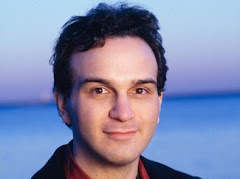We had not seen Joshua Bell at the DFP for over a decade now after his last brilliantly varied and subtly modulated performance of the Brahms Violin Concerto with the MPO. So, it was a pleasure to welcome him back to the hall in Max Bruch's evergreen Violin Concerto No 1 Op 26. Equally, it was no surprise that a capacity audience turned out for one of the most popular violinists on the current international circuit, playing one of the four greatest gems of the German violin concerto repertoire.
Bell is a consummate artist of such great musicianship that he was able to instil new life into such a well-trodden score. He delved into Bruch’s music fully focused, avoiding any grand gestures and any unnecessary theatricality. Bruch's long melodic lines were played with character and a warm luscious sound emanated from his 1713 ex-Gibson Huberman Stradivarius.
The opening two solos of the Prelude (Allegro moderato) had a tender, withdrawn, improvisatory quality. Although Bruch's music is rather rhythmic and virtuosic in nature in this first movement, Bell eschewed these aspects in favour of a more introverted older-school interpretation and with sweeter tones and portamenti more reminiscent of his teacher, Josef Gingold. Conductor Mark Wigglesworth scaled back the dynamics of the accompanying MPO to accommodate Bell's softer and sweeter approach.
The inescapably romantic Adagio second movement was beautifully played, with both Bell and the MPO combining to produce a warm and rich texture, making the music flow with passionate intensity. The Finale with its gypsy feel was played with plenty of verve, with Bell navigating the interweaving phrases with superb technique and enthusiasm leading to a satisfyingly joyous climax.
Those in the audience who applauded Bell vociferously after the Bruch had another prepared encore shown in the programme notes as Bell served up a fragrant dessert in the shape of Sarasate's Zigeunerweisen (Gypsy Airs) Op 20. Bell began the gypsy music with a soulful introduction on the G-string, followed by a mournful slow section played freely almost as an improvisation, with subtle portamenti and astute choice of high position fingerings. Bell's wonderful spiccato bowing in the brilliant and fleeting finale whipped the audience into wild frenzy.
In the second half, Mark Wigglesworth gave us a decent performance of Bruckner's popular and lyrical Seventh Symphony. In the first movement, the MPO and Wigglesworth were not entirely convincing in portraying Bruckner's big musical building blocks into cathedrals of sound structural unity. In the eloquent and soulful Adagio, Wigglesworth rightfully discerned that the symphony’s heart lay there and unfolded the movement with stately grandeur up to one of Bruckner’s most impassioned central climaxes, replete with triangle and cymbals.
The third movement (Scherzo) felt perhaps a touch heavy, slow and sluggish instead of being a bit more light-footed in character and in keeping with the composer's Sehr Schnell marking. In the finale, structural issues predominated proceedings and the less-than-majestic ending did not sound organically woven into Bruckner's musical fabric.
Subscribe to:
Post Comments (Atom)
















































No comments:
Post a Comment